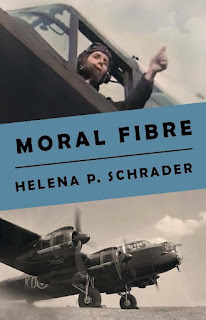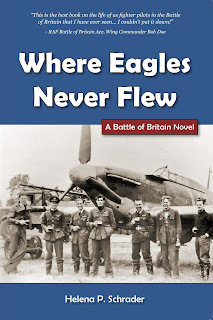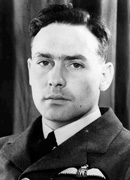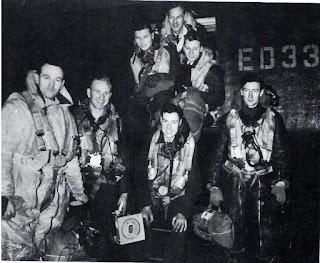Helena P. Schrader's Blog, page 19
July 13, 2022
Blog Tour: Ten Things You Might Not Know about "Moral Fibre"

I'm delighted to welcome Helena P. Schrader to the blog today as part of the blog tour for MORAL FIBRE: A BOMBER PILOT'S STORY, the exciting new historical fiction. Find out ten things you probably didn't know about this book at:
http://bloggingauthors.blogspot.com/
July 11, 2022
Blog Tour Stop : Dear Reader, Love Author
Today, I have the great honor of talking directly to my readers on the "Dear Reader, Love Author" Blog. I really loved this opportunity to talk about "Moral Fibre"! I hope you'll take a minute to read my message.

http://dearreaderloveauthor.blogspot.com/2022/07/dear-reader-love-helena-p-schrader.html
Blog Tour Stop 4 : Dear Reader, Love Author
Today, I have the great honor of talking directly to my readers on the "Dear Reader, Love Author" Blog. I really loved this opportunity to talk about "Moral Fibre"! I hope you'll take a minute to read my message.

http://dearreaderloveauthor.blogspot.com/2022/07/dear-reader-love-helena-p-schrader.html
July 7, 2022
Blog Tour Stop: The Story Behind the Book
Today the blog tour continues. Today's post focuses on the story behind the story. Join me at:
https://thestorybehindthebook.blogspot.com

Blog Tour Stop 3: The Story Behind the Book
Today the blog tour continues. Today's post focuses on the story behind the story. Join me at:
https://thestorybehindthebook.blogspot.com

The Story Behind the Book
Today the blog tour continues. Today's post focuses on the story behind the story. Join me at:
https://thestorybehindthebook.blogspot.com

July 6, 2022
I'm on Tour!
Or rather "Moral Fibre" is!
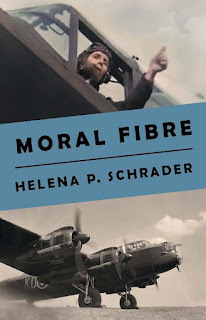
Visit Pump Up Your Book Virtual Blog Publicity Tour and read the opening chapter! Click here.
July 5, 2022
“A riveting read and highly recommended!” – Chanticleer Reviews
Chanticleer Reviews awards "Moral Fibre" 5 Stars!
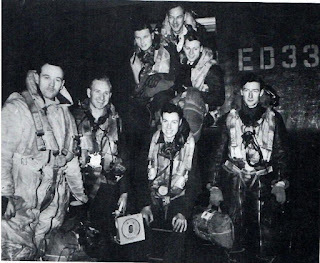 "[Moral Fibre] takes the reader into the English psyche of [WWII], tapping the depths of human emotions, holding them up to the light, and revealing their concomitant beauty and ugliness in times of fear and crises. Before the war is over for Kit, he finds his inner strength, finds love, and learns the true meaning of sacrifice.
"[Moral Fibre] takes the reader into the English psyche of [WWII], tapping the depths of human emotions, holding them up to the light, and revealing their concomitant beauty and ugliness in times of fear and crises. Before the war is over for Kit, he finds his inner strength, finds love, and learns the true meaning of sacrifice.
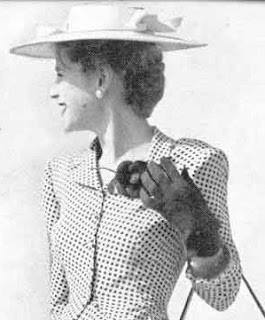 Meticulously researched and skillfully written, Schrader's Moral Fibre steps off the pages and comes to life. Her nuanced characters and authentic dialogue also provide a glimpse of Britain's stratified class-conscious culture during the WWII era.
Meticulously researched and skillfully written, Schrader's Moral Fibre steps off the pages and comes to life. Her nuanced characters and authentic dialogue also provide a glimpse of Britain's stratified class-conscious culture during the WWII era. Schrader picks a critical period during WWII for the setting and, in so doing, educates today's readers about the horrors of a war that was and what it takes to save a nation—and perhaps the free world."
5 Stars!
Best Book
Chanticleer Book Reviews
Read full review here.
they took the war to Hitler.
Their chances of survival were less than fifty percent.
Their average age was 21.
This is the story of just one bomber pilot, his crew and the woman he loved.
It is intended as a tribute to them all.
or Barnes and Noble.
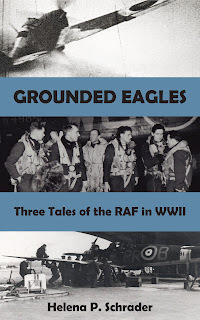 Disfiguring injuries, class prejudice and PTSD are the focus of three heart-wrenching tales set in WWII by award-winning novelist Helena P. Schrader. Find out more at: https://crossseaspress.com/grounded-eagles
Disfiguring injuries, class prejudice and PTSD are the focus of three heart-wrenching tales set in WWII by award-winning novelist Helena P. Schrader. Find out more at: https://crossseaspress.com/grounded-eagles
"Where Eagles Never Flew" was the the winner of a Hemingway Award for 20th Century Wartime Fiction and a Maincrest Media Award for Military Fiction. Find out more at: https://crossseaspress.com/where-eagles-never-flew
For more information about all my books visit: https://www.helenapschrader.com
June 28, 2022
DISSECTION A NOVEL - THE PURPOSE FOR WRITING: THE MESSAGE
For me, the ultimate purpose of writing is to communicate. A book can be entertaining. It can offer an escape from reality. And it can be educational. Yet the best books do more than that. They make their readers think, reflect and maybe even change their minds about things. In all my books, I strive to both educate and inspire. If I don't have something I want to say about a topic, I don't write. Period.
Moral Fiber is intended as a tribute to the aircrew of Bomber Command 1939 -1945. Men like John Nettleton pictured above, who died at the age of 26 leaving no wife and children behind. He earned the VC for his outstanding dedication to duty, but has since been completely forgotten, even -- or possibly especially -- in his homeland of South Africa, where a white man fighting for Britain is no longer politically correct. Yet all the men who flew with Bomber Command lie under a shadow cast by post-war doubts about the efficacy and the morality of their mission: a strategic bombing offensive against an entire nation. As I have written elsewhere, many people are uncomfortable with the use of bombing, particularly the imprecise "area" bombing conducted by the RAF in the Second World War. It is inconvenient, therefore, to remember the roughly 55,000 men who gave their lives conducting that war. With Moral Fibre I seek to push readers off their "high horse" of moral rectitude and challenge their smug assumptions of superiority. I want them to put themselves in the shoes of young men and young women in Britain in 1944. I do not attempt to give answers about what is right and wrong, I simply want a deeper understanding of what was involved for participants. My principal characters are devout Christians and they each struggle in their own way to understand what God intents for them and what they owe to Him and to others. Yet, as my character Reverend Reddings reminds his daughter, all human understanding of God is incomplete. Reddings tells her: "It is hubris to think we can understand God's will and plan for us." Yet I hope that readers can identify with the issues and the feelings that my characters encounter. I hope that by suffering through their crises and triumphs along side them, they will come to a closer understanding of their own spiritual challenges.
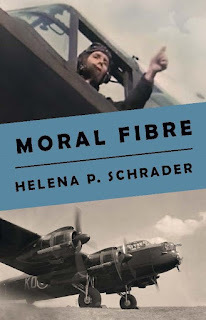
Riding the icy, moonlit sky— They took the war to Hitler.
Their chances of survival were less than fifty percent. Their average age was 21.
This is the story of just one Lancaster skipper, his crew,and the woman he loved.
It is intended as a tribute to them all.
Flying Officer Kit Moran has earned his pilot’s wings, but the greatest challenges still lie ahead: crewing up and returning to operations. Things aren’t made easier by the fact that while still a flight engineer, he was posted LMF (Lacking in Moral Fibre) for refusing to fly after a raid on Berlin that killed his best friend and skipper. Nor does it help that he is in love with his dead friend’s fiancé, who is not yet ready to become romantically involved again.
June 21, 2022
DISSECTION OF A NOVEL - When Characters Speak: The Challenges of Dialogue in Historical Fiction
Every author has their own, unique voice which develops naturally in the course of writing, but when characters speak -- particularly characters in a historical setting -- they should not sound like the author but like themselves. What this means is that characters in a historical novel must use language that is appropriate to their age, education level, family background and profession -- and of course the time period in which they lived.
The greater challenge is when writing, as with Moral Fibre, a book set in a modern -- but not contemporary -- English-speaking environment. No, people in the Second World War did not ask "what's up?" They didn't say "awesome" to express approval or "I hear you" to mean they sympathize. They certainly didn't fill their sentences with "like" every fourth word. They had a variety of other expressions which were popular. And that's the trick.
It is much easier avoiding something inappropriate than becoming sufficiently comfortable with language we no longer use to employ it fluently and without making the characters sound stilted. The RAF was notorious for using jargon that even their contemporaries found nearly incomprehensible. They used phrases like "buying it" and "going for six" to mean getting shot down. "Brassed off" and "cheesed off" referred to being fed up with something. A "gong" was a medal, a "fruit salad" a lot of medals, a Mae West a life vest and a "prang" an accident. Smashed, sozzled, pie-eyed, pissed, and pickled were all ways of saying drunk, while "corkers," "crumpets," "streamlined piece," and "bird" were all other words for "popsie" or woman/girl. To "pancake" was to land, to "bind" was to complain, to "get the drift" was to understand, to "hold the can" was to be responsible, to "kip" was to sleep, to "shoot a line" was to brag or boast. Fortunately, there are dictionaries of RAFese available to the interested historian! I have included one at the back of Moral Fibre.
I was also fortunate to have access to a large number of primary sources written during or shortly after the war. These still employed the contemporary idiom. Accounts written by RAF personnel use their jargon unpretentiously and in context. After reading enough, the language of the period became not only comprehensible but seeped into my own vocabulary and I felt "fluent" in it.
Here's an example of a character speaking RAFese that I wrote without having to think about it.
“It was sheer chaos and confusion from the moment I pancaked in London. You remember the letter. I thought I was meeting up with a very streamlined piece of nice called Cynthia, but she showed up with her friend Julia, and of course I didn’t want to be rude. So, I called a friend of mine to see if he wanted to join us. We went to school together, but he’s flying a desk with the Admiralty after being wounded in the Med. He graciously agreed to join us — only to start charming Cynthia clear out of her knickers. All right, I don’t know if he got that far, but I was more than a little browned off! But there was Julia, and while she isn’t the corker Cynthia is, she wasn’t entirely humid. In fact, she was a terrific dancer, one thing led to another, and…” Adrian downed the whisky in a single swig and announced he needed another, looking around for an orderly.
“Don’t leave me in suspense! And what?”
“I think I got myself engaged.”
An issue that I found particularly challenging and never fully solved, on the other hand, was the correct use of expletives. Words that are now used casually by men (and even women) were much more taboo eighty years ago. To put these words in my character's mouths would have degraded them -- and yet, using the language of the time does not convey to modern readers the emotion behind such swear words. I did my best but I'm not sure I succeeded. Here's an example.
“I’m not fighting for no British Empire!” Nigel countered angrily. “I don’t give a tinker’s damn about the flaming British Empire. And if we’re fighting for democracy, then we need more of it right here in England! But I won’t never forgive the effing Nazis for what they’ve already done neither!”
Next week I will explore the message or theme of the novel.

Riding the icy, moonlit sky— They took the war to Hitler.
Their chances of survival were less than fifty percent. Their average age was 21.
This is the story of just one Lancaster skipper, his crew,and the woman he loved.
It is intended as a tribute to them all.
Flying Officer Kit Moran has earned his pilot’s wings, but the greatest challenges still lie ahead: crewing up and returning to operations. Things aren’t made easier by the fact that while still a flight engineer, he was posted LMF (Lacking in Moral Fibre) for refusing to fly after a raid on Berlin that killed his best friend and skipper. Nor does it help that he is in love with his dead friend’s fiancé, who is not yet ready to become romantically involved again.

